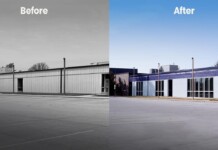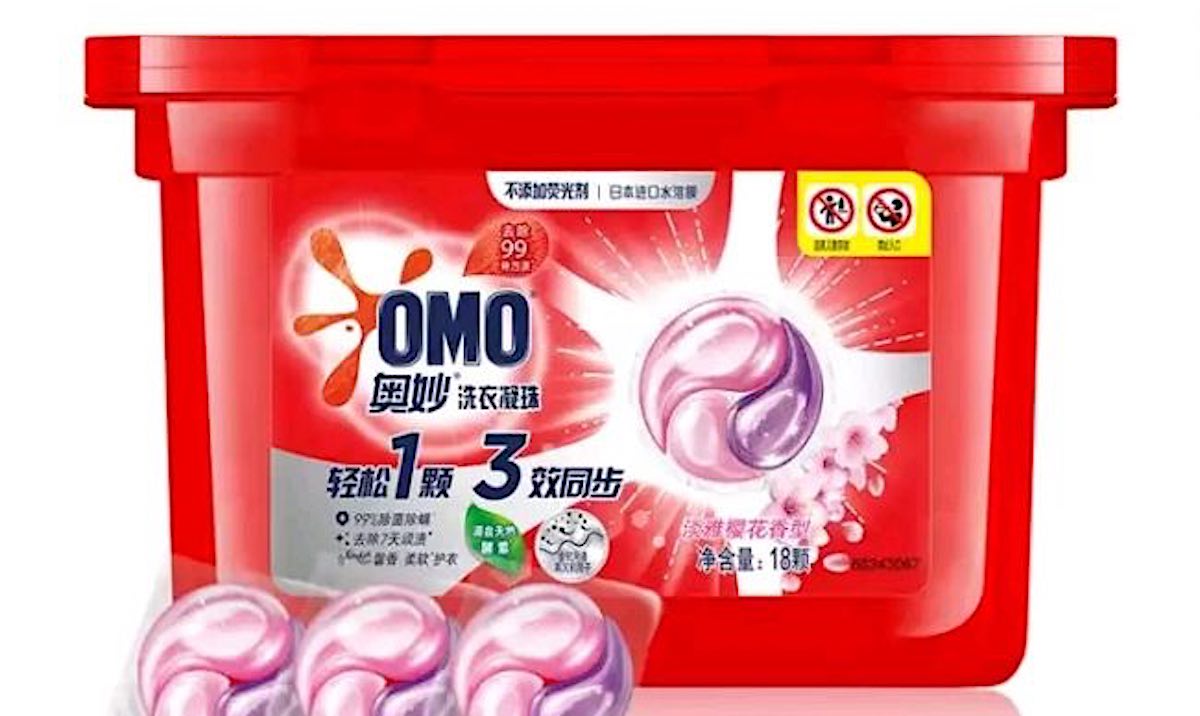Unilever has partnered with LanzaTech and India Glycols to produce a laundry soap made from industrial carbon emissions—instead of from fossil-fuels.
The innovative shift in production utilizes biotechnologies and a newly configured supply chain between the three partners, who are working together for the first time.
Typically derived from fossil fuels, surfactants are a critical ingredient for creating the foam and cleaning action of many household cleaning and laundry products—from dish soaps to fabric detergents. The new process now allows surfactants to be made using recycled carbon.
Recycled carbon is a key form of renewable carbon and is essential to eliminating the use of fossil fuels.
The process marks the first time a surfactant made using captured carbon emissions will be offered to consumers in a mainstream cleaning product. The new surfactant launched in China on April 22nd, Earth Dan, in an OMO (Persil) laundry capsule—and, best of all, will not increase the price of the product.
Unilever consumer data from 2020 found that 87% of consumers in China considered climate change as serious a threat as Covid-19, the highest of all countries polled.
The breakthrough process involves primarily three stages:
Capture– LanzaTech, a “world leader in CarbonSmart products”, uses biotechnology to capture industrial waste emissions at its Beijing Shougang plant and converts these emissions to ethanol, which is estimated to cut the greenhouse gas emissions by 82% compared to the traditional fossil-fuel process, according to a company study.
Conversion: India Glycols converts the ethanol into ethylene oxide, a key feedstock to make surfactants at their site in India.
Formulation: Unilever uses the surfactant in the new OMO laundry capsules, manufactured at its Hefei factory in China.

The partnership is just one way that Unilever is making good on its September 2020 Clean Future pledge, which states that the multinational company hopes to eliminate fossil-fuel based chemicals from its cleaning and laundry product formulations by 2030.
“Advancements in technology like this mean we can now reinvent the chemistry of our products, asserts Peter ter Kulve, President of Home Care, Unilever. “Instead of valuable carbon being released directly into the atmosphere, we can capture it and recycle it in our products instead of using fossil fuels.
“New innovations like this help move our iconic cleaning brands away from fossil fuels without compromising on performance or affordability,” he added in a company statement.
Jennifer Holmgren, the CEO of LanzaTech said, “Our planet is running out of time and how we treat carbon requires urgent revision. By working with Unilever and IGL we can turn waste carbon into an opportunity, keeping fossil fuels in the ground and enabling new circular processes to make the products we use every day.”
A recent report estimates that renewable carbon production will need to increase by a factor of 15x by 2050 to phase-out the use of fossil carbon in consumer products.
The Unilever Home Care division also has committed to achieving Net Zero emissions from all products by 2039.
SHARE the Amazing Corporate Good News on Social Media…




















